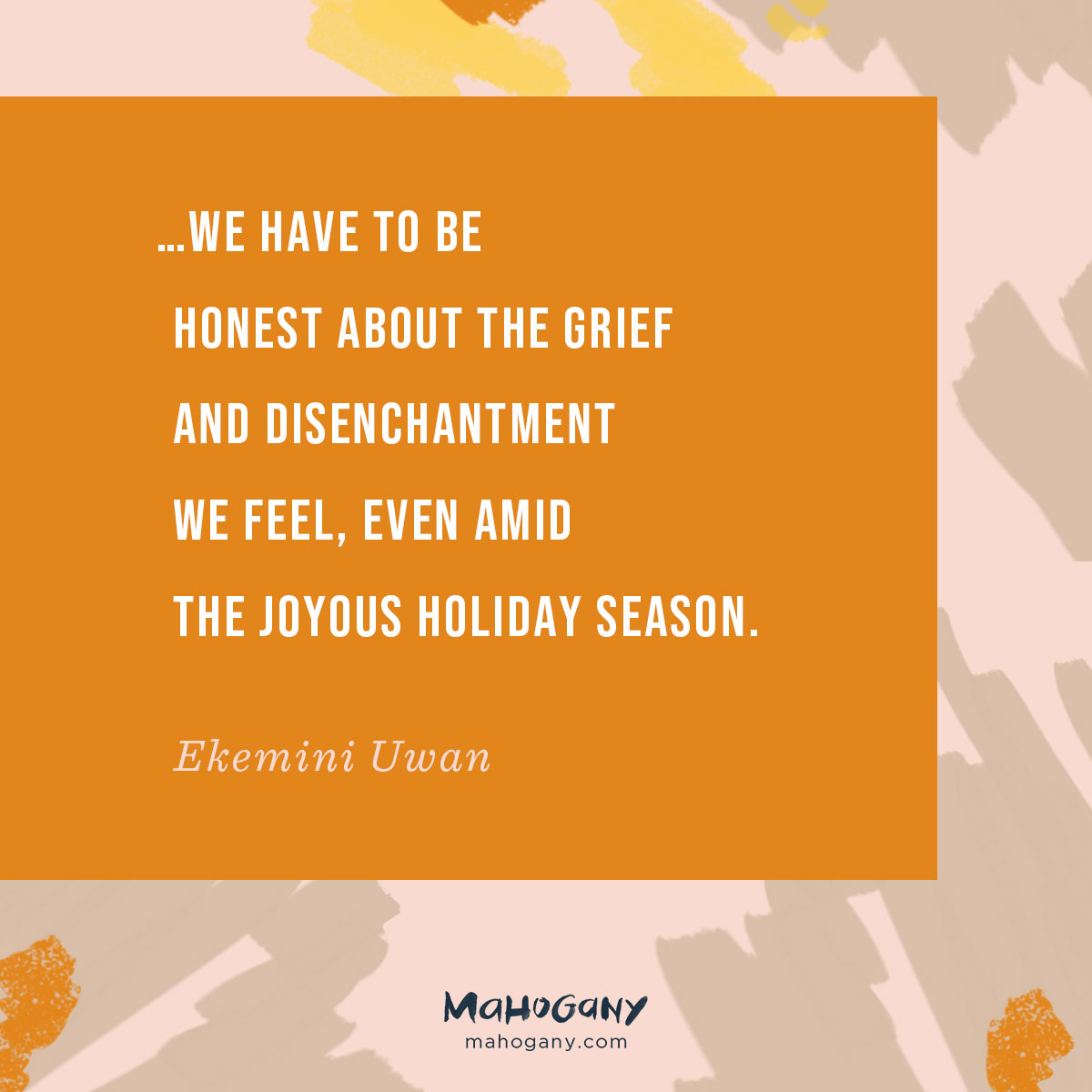The end of the year is upon us, which means that the holiday season is, too. For some, it’s the most wonderful time of the year, but for others, it’s the most dreadful time. People can find themselves in either camp exclusively or in both simultaneously. We do contain multitudes, after all. Then there are those who haven’t necessarily had bad years per se, but they suffer from Seasonal Affective Disorder (SAD). According to Johns Hopkins Medicine, SAD is “a type of depression. It happens during certain seasons of the year—most often fall or winter. It is thought that shorter days and less daylight may trigger a chemical change in the brain leading to symptoms of depression.”
If I’m honest, I am in the “most wonderful time of the year” camp with a tinge of dread and grief. To be more specific, due to the death of my beloved father and my one of my favorite aunts, as much as I love Christmas, the combination of New Year’s Eve and Christmas can feel like Groundhog Day due to years of hoping and praying that the incoming year will be the year where long-standing prayers are finally answered.
Zora Neale Hurston said it best, “There are years that ask questions and years that answer.” But what do we do with consecutive years that bring no answer?
I think that’s when we have to be honest about the grief and disenchantment we feel, even amid the joyous holiday season. We have to name it for what it is because there is power in naming our pain. We have to sit with the grief and let it have its way. We have to recognize that although there is a permanence to grief on this side of heaven, our grief is directly correlated to our eternal love for our loved ones or our desire for a good thing that has yet to come to pass in our lives.
The intensity of grief lives on a continuum, and it won’t always trigger despair. In fact, I think that naming it helps us reclaim our agency in the midst of grief by acting as a buffer to the searing pain it comes with. Far too often, we feel that grief is happening to us instead of for us, and I think both realities are true.
Everything in me wishes my father was still here. I wish I didn’t lose him at the tender age of nineteen. He was too young to fly away, and I was too young to be left fatherless. If I had my way, he’d still be here, earthside; only God knows why my dad died an early death. I’ll never understand it, but what I know for sure is that my grief has cultivated within me a greater empathy, patience, and graciousness toward other people.
Lord knows I have not arrived. I am still learning and growing in the grace of God, patience, and empathy, but it’s the school of grief that’s been shaping me in ways that I wouldn’t have known apart from grief. I’ve come to consider grief a lifelong companion instead of an enemy. To be clear, death is our enemy, according to 1 Corinthians 15:26, and I conflated the two when my grief journey began over twenty years ago. But now I’ve been given the gift of reframing my grief, and for that I’m grateful. I think it’s the grace of God, the work of the Holy Spirit, and therapy that have helped me to relate to grief in this way.
Last month, I attended the “We Go On” tour, which was created by John Onwuchekwa. It was an interactive and engaging tour that explored the intersection of hope and grief. It truly was an immersive experience, so much so that I found myself laughing and crying at the same time. One takeaway that I’m grateful for is that I received new language for another kind of grief I’ve been carrying throughout my life.
The new term I learned is called “ambiguous grief.” This is what one experiences when dreams, goals, and hopes are dashed or remain unfulfilled. I didn’t know there was a term for that, but I’ve carried that for the majority of my adult life. So, during this holiday season, as we barrel toward the capstone of 2023, I am determined to reclaim my agency and name my grief—whether it be ambiguous or conspicuous—with tears in my eyes, joy in my heart, and a smile on my face. I will go on.
Sistas, do you deal with grief during the holiday season? If so, what are some of your coping strategies? In other words, how will you go on?
Leave a Comment



Reader Interactions
No Comments
We'd love to hear your thoughts. Be the first to leave a comment.